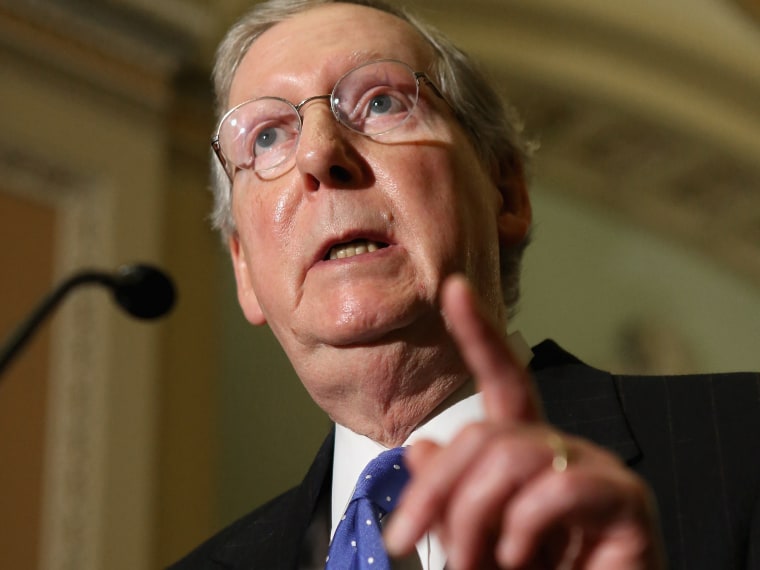Raise your hand if you think that wealthy people and corporations in this country have a hard time getting their message out. Anyone? Ah, there’s one. You, sir, in the back. What’s that you say? Money is speech? And limits on campaign spending therefore suppress speech? And requirements to disclose who’s spending money to support which candidacies also suppress speech? But wait. Disclosure is just information. Isn’t disclosure speech too?
The gentleman in the back is my invention, but his arguments are not. They were made Friday in a speech titled “The Continuing Assault On The First Amendment” that Sen. Mitch McConnell gave at the American Enterprise Institute, a conservative think tank in Washington.
Much of McConnell’s speech was just smarmy insinuation. The current Internal Revenue Service scandal, McConnell argued, was not just a matter of the IRS responding ham-handedly to a flood of Tea Party applications for legally-questionable tax exemptions: it was the inevitable consequence of President Obama’s daring to criticize the Koch-funded advocacy group Americans For Prosperity. President Obama’s criticism, McConnell said, was “like sending a memo to the IRS that said ‘audit these guys.’” In effect, McConnell was saying that to protect freedom of speech for President Obama’s well-funded opposition (Charles and David Koch have a combined net worth of $62 billion, and tie at Number 4 on Forbes’s list of the richest Americans), it was necessary for the president of the United States to curtail his own speech.
But the main thrust of McConnell’s speech was to proclaim it a menace that the president doesn’t like corporations spending money on politics--as they may now do under the Supreme Court’s Citizens United decision--and that he thinks corporations, along with rich individuals, should be compelled to disclose when they do so. All Citizens United really did, McConnell said, was establish that “every corporation in America should be free to participate in the political process, not just the ones that own newspapers and TV stations.” But newspapers and TV stations express views about candidates by voicing opinions in the open. Other corporations express views by spending money in secret. (And incidentally, if corporations are people, then why does the top corporate income-tax rate kick in at $18 million? Shouldn’t it start at $425,000, as it does with people?)
“Right now,” McConnell said, “there’s an effort over at the FCC to get groups that buy campaign ads to disclose their supporters. This is utterly irrelevant to the mission of the FCC. We need to say so.” The identities of people who exercise their free speech through their wallets by buying time on publicly-owned airwaves is none of your business? “The SEC,” McConnell continued, “is under pressure right now to force publicly-traded companies into disclosing all their political spending, even though it has no core interest in knowing what political causes companies support. This proposal doesn’t protect shareholders, and it doesn’t lead to better corporate governance [italics mine].” McConnell appeared to be saying that corporate spending on political campaigns wasn’t only something the citizenry had no business knowing; it was also something the shareholders had no business knowing.
At the conclusion of his remarks, McConnell opened the floor to questions. AEI’s Norm Ornstein, a meticulous centrist, rose to ask a question about McConnell’s previous support for disclosing political spending. Before he could get the words out of his mouth, though, McConnell told Ornstein he’d been “consistently wrong on almost everything,” and asked, “who eats lunch with you over at this organization?” When McConnell finally answered Ornstein’s question, he said he hadn’t favored disclosure since the 1980s.
That was untrue. As Fred Hiatt has pointed out in the Washington Post, McConnell favored it as recently as 2000, when he said on NBC’s “Meet the Press” that “Republicans are in favor of disclosure” and asked, “Why would a little disclosure be better than a lot of disclosure?” (Hiatt said it was clear that McConnell was talking about issue advocacy as well as direct candidate spending.) Ornstein didn’t press the point, though. Maybe he was afraid McConnell would accuse him of suppressing McConnell’s first amendment rights.
